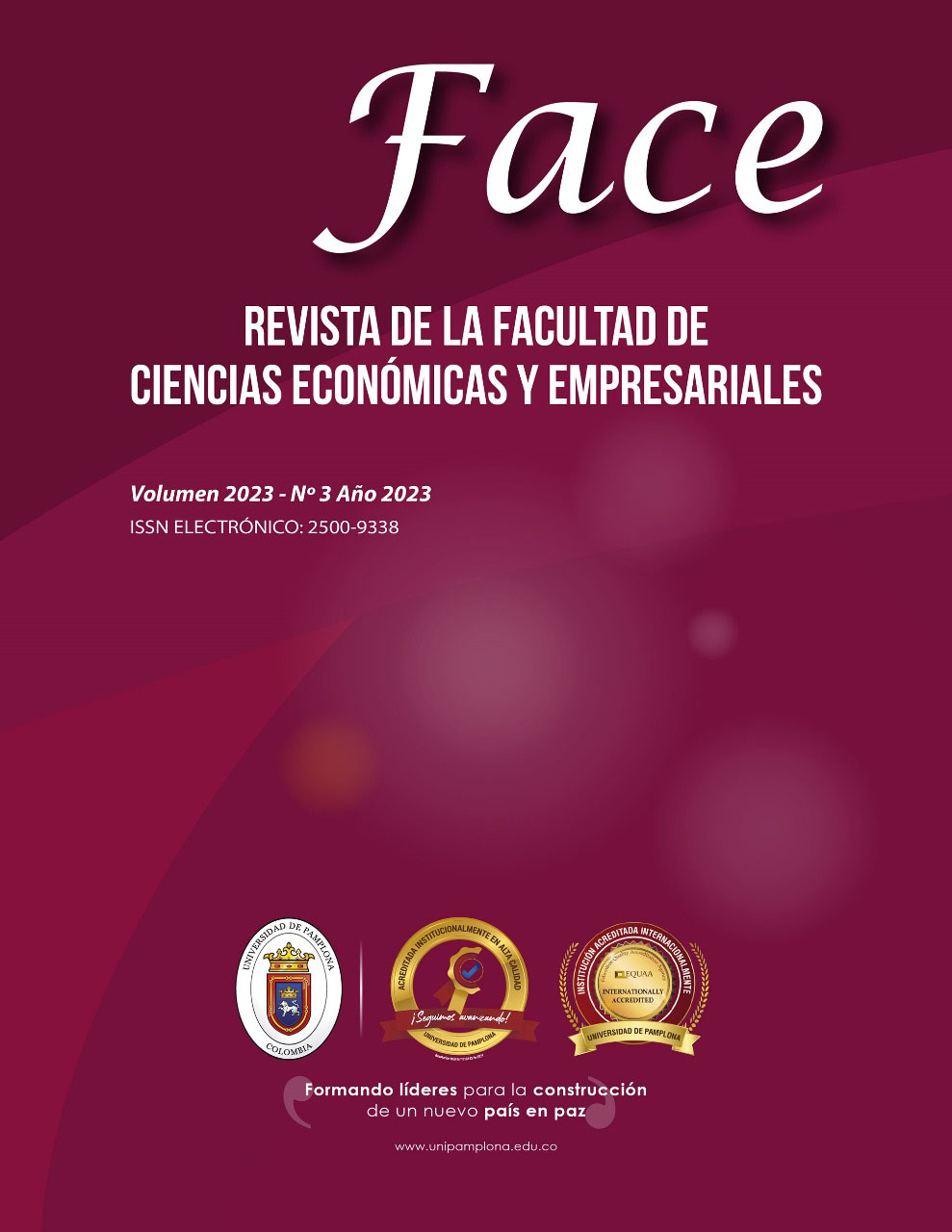The impact of sustainable marketing and the trend of vintage or second-hand clothing on Generation Z.
DOI:
https://doi.org/10.24054/face.v23i3.2616Keywords:
sustainable marketing, fast fashion, second-hand clothing, generation ZAbstract
Currently, second-hand or vintage clothing has become a purchasing trend among young people of generation Z. This is due to the fact that various organizations resort to the use of digital platforms, whether for convenience, economy or the apparent or real intention to contribute to the environment, to communicate a sustainable position. In this way, generation Z is interested in purchasing vintage clothing since this is a generation that was born and raised under an educational scheme aimed at helping the environment, leading them not to create consumerism of disposable clothing or fast fashion. The present research is of a mixed nature, of exploratory-descriptive scope and of transectional scope, whose main objective was to establish the impact and influence that marketing has had on vintage clothing on young people. Young people between 15 and 24 years old in Morelia, Mexico were surveyed to find out the impact of vintage or second-hand clothing fashion marketing on this sector of the population. The research made it possible to establish an attraction on the part of young people to consume more and more second-hand clothing.
Downloads
References
Bur, A. (2013). Marketing sustentable. Utilización del marketing sustentable en la industria textil y de la indumentaria. Cuadernos del Centro de
Estudios en Diseño y Comunicación., (45°), 133-142. file:///C:/Users/alexi/Downloads/Dialnet-MarketingSustentableUtilizacionDelMarketingSustent-4200817.pdf
Cassidy, T.D., & Bennett, H.R. (2012). The rise of vintage fashion and the vintage consumer, Journal of Fashion Practice. 4, 239-262. https://www.researchgate.net/publication/263775230_Cassidy_TD_Bennett_HR_2012_The_rise_of_vintage_fashion_and_the_vintage_consumer_Journal_of_Fashion_Practice_4_2_239-262 DOI: https://doi.org/10.2752/175693812X13403765252424
Cervellon, M., Carey, L., & Harms, T. (2012). Something old, something used. International Journal of Retail & Distribution Management (12th ed., Vol. 40). DOI: https://doi.org/10.1108/09590551211274946
Chatvijit, S. (2012). Exploring the effects of scarcity, impulse buying, and product returning behavior in the fast fashion environment
among female fashion conscious consumers.
Dueñas, J & Peñalosa, M. (2015). Desarrollo de las relaciones de negocios internacionales de pymes del subsector confección de ropa en Bogotá, Colombia. Cuadernos Latinoamericanos de Administración. (Vol 10,19). https://revistas.unbosque.edu.co/index.php/cuaderlam/article/view/619/212 DOI: https://doi.org/10.18270/cuaderlam.v10i19.619
Doardi, D. (2021). Entorno digital y Generación Z. Teoría de la Educación. RevistaInteruniversitaria,, 27-47. https://doi.org/10.14201/teri.25224 DOI: https://doi.org/10.14201/teri.25224
Espiritusanto Nicolás, O. (2016). Generación Z móviles, redes y contenido generado por el usuario. Revista de Estudios de Juventud, (114), 111-126. https://dialnet.unirioja.es/servlet/articulo?codigo=6118380
Ferraro, C., Sands, S., & Brace-Govan, J. (2016). The role of fashionability in second hand shopping motivations. Journal of Retailing and Consumer Services, (32), 262 -268. DOI: https://doi.org/10.1016/j.jretconser.2016.07.006
Fuller, D. (1999). Marketing sustentable. Managerial-Ecologial issuer. DOI: https://doi.org/10.4135/9781452220611
García, M., & Villanueva, M. (2019, Junio). Mercado de segunda mano textil: análisis de buenas prácticas en empresas americanas del sector.
Comillas Universidad Pontificia.
García-Orcoyen, C. (2009). Fundación Entorno. http://www.fundacionentorno.org/
Gómez Velásquez, A. E. (2018). Ropa de segunda mano VS pronta moda, a nivel local y global. Universidad Pontificia Bolivariana. https://repository.upb.edu.co/bitstream/handle/20.500.11912/4871/Ropa%20de%20segunda%20mano%20VS%20pronta%20moda.pdf?sequence=1&isAllowed=y
Guiot, D., & Roux, D. (2010). A second-hand shoppers’ motivations scale: Antecedents consequences, and implications for retailers. Journal of Retailing,, 4(86), 355-371. DOI: https://doi.org/10.1016/j.jretai.2010.08.002
Kotler, P., & Armstrong, G. (2012). Marketing. https://www.researchgate.net/profile/Rogelio-Flores/publication/284724150_innovaciones_y_puntos_clave_para_el_desarrollo_de_las_organizaciones_competitividad_calidad_educacion_conocimiento_responsabilidad_social_finanzas/links/5657d15c08aefe619b1f34b7/inno
Lara, I., & Ortega Cachón, I. (2016). Los consumidores de la Generación Z impulsan la transformación digital de las empresas. Revista de Estudios de Juventud, (114°), 71-82. https://dialnet.unirioja.es/servlet/articulo?codigo=6118377
Llovet, R. C. (2016). Razones Para La Emoción En El Consumo De Moda. Vivat Academia, 137, 57–77. https://doi.org/10.15178/va.2016.137.57-77 DOI: https://doi.org/10.15178/va.2016.137.57-77
López Barrios, M. C. (2012). El impacto ambiental del *fash fashion pronta moda. Académica e Institucional, Arquetipo de la UCP, 71 a 79. https://revistas.ucp.edu.co/index.php/arquetipo/article/view/1088/1065
Martín, C. D., Solano, A. M., & Serrano, O. J. F. (2022). Hábitos de consumo de moda a través de influencers en la generación Z. Vivat Academia. Revista de Comunicación, 155, 39–68. https://doi.org/10.15178/va.2022.155.e1387 DOI: https://doi.org/10.15178/va.2022.155.e1387
Martínez Barreiro, A. (2008). La moda rápida: última transformación del sistema de la moda. Universidad Nova de Lisboa.
Rodríguez Agudelo, I. F., Maigua Cruz, M. S., & Salas Pachón, L. F. (2019). Vintadvertising, influencia en comportamientos proambientales sobre el consumo de recursos energéticos en la Comunidad Universitaria los Libertadores (Bogotá), desde la publicidad con tendencia vintage. https://repository.libertadores.edu.co/bitstream/handle/11371/3194/Rodr%c3%adguez_Maigua_Salas_2019.pdf?sequence=1&isAllowed=y
Weinstein, J. (2014). Reframe, Reuse, and Re-Style: (De)Constructing the Sustainable Second-Hand Consumer.https://digitalcollections.wesleyan.edu/island
ora/object/ir%3A1633/datastream/PDF/view
Published
Versions
How to Cite
Issue
Section
License
Copyright (c) 2023 FACE: Revista de la Facultad de Ciencias Económicas y Empresariales

This work is licensed under a Creative Commons Attribution-NonCommercial-ShareAlike 4.0 International License.





